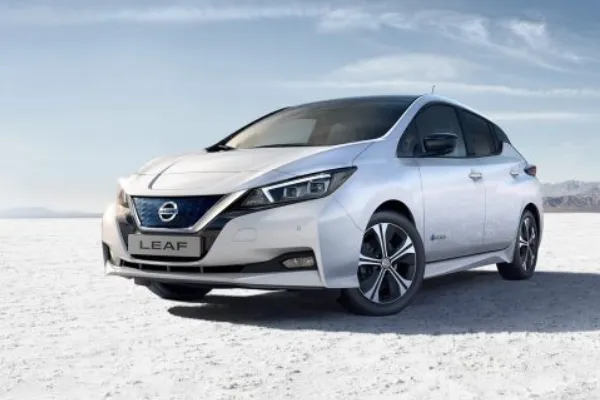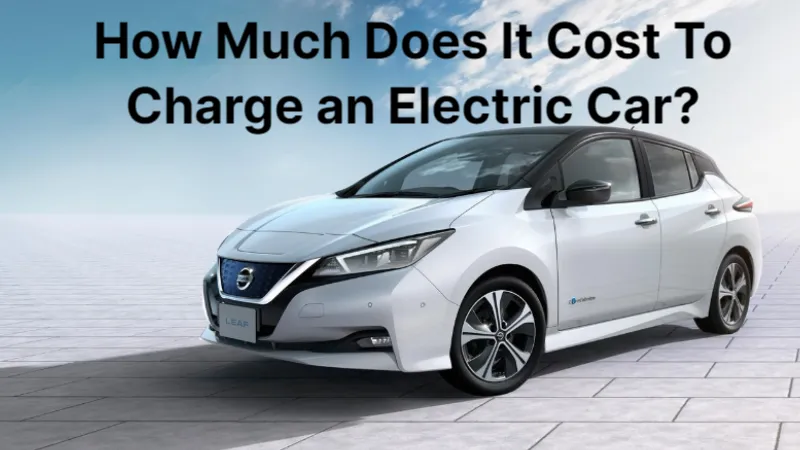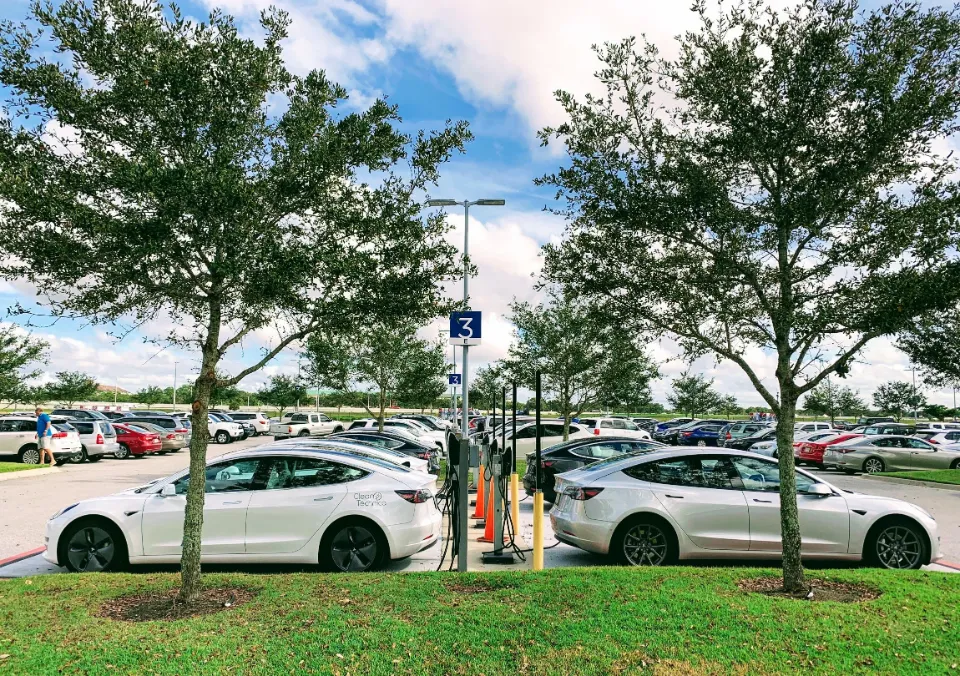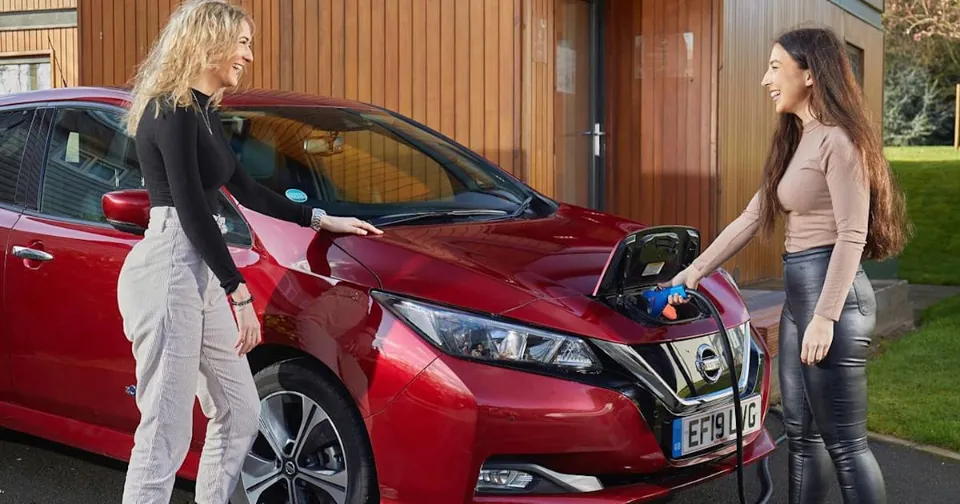EVs, or electric vehicles, are currently a hot topic. Here’s the question, how much does it cost to charge an electric car?
To calculate the cost, EV owners should grab their most recent electricity bill and look for the cost per kilowatt hour, or kWh. This cost can range from $0.09 to $0.35, but the national average is shy of $0.14.
Please read on for more detailed information.
How Much Does It Cost to Charge An Electric Car?
How much it costs to charge an electric car cannot be explained with a blanket statement. The price is influenced by several factors. Although costs differ by region, charger type, and hour of the day, averages of these factors can be used to determine a general cost. Here’s how:
The Cost of Electricity
The cost of the electricity itself, which can be much more expensive in some regions than others, is a significant factor in how much it will cost to charge an electric vehicle. Therefore, EV owners should be familiar with local electricity prices.
The cost per kilowatt hour, or kWh, on an electric vehicle owner’s most recent electricity bill should be used to calculate the cost. The national average for this cost is just under $0.14, but it can range from $0.09 to $0.35.
Electric Car Charging Cost Formula
The formula for the cost of charging an electric car is:
Cost to Charge = (CR / RPK) x CPK
- CR is car range
- RPK is range per kWh
- CPK is cost per kWh
To begin, divide the range in miles by the range in kWh for the electric vehicle. When EV owners have this figure, they can multiply it by their particular cost per kWh to calculate the cost of charging their EV.

Calculating How Much It Costs to Charge Your Electric Car
Since electric vehicles have different ranges, some can travel farther on a single charge than others. Additionally, there can be huge regional differences in the price per kWh. But those are not the only factors to take into account when estimating the price of charging an electric vehicle.
Where and how the EV owner charges their vehicle is a crucial additional factor. In comparison to those who use a public charger, those who charge their cars at home will pay a different rate. Some people who charge their cars using commercial options will pay different prices than others because the type of charger also affects cost.
Charging Your Electric Car at Home
It’s not difficult to figure out how much it costs to charge an electric car at home. Here are the steps:
- The cost per kWh can be found by looking at your electric bills.
- Calculate the average mileage per kWh for your EV. Typically, EVs get three miles per kWh, but the actual mileage can vary greatly depending on the vehicle.
- Calculate your electric car’s range in miles.
- Enter each of these figures into the formula below.
For example, if the EV driver pays $0.14 per kWh, their car gets an average of three miles per kWh, and it has a total range of 360 miles, the formula would look like this:
Cost to Charge = (360 / 3) x $0.14
The math in the formula indicates that charging this specific electric vehicle at home will cost $16.80.
Charging Your Electric Car With a Commercial Charger
It is challenging to estimate how much it would cost to charge your car using commercial options because prices differ from network to network. If the driver is a part of the network they use, the prices will vary even more.
The formula is still valid, though, provided that the drivers are aware of their cost per kWh for the particular network they use. Say the network charges $0.21 per kWh using the same example as above. The formula would look like this:
Cost to Charge = (360 / 3) x $0.21
To fully charge the EV in this scenario would cost $25.20.
How Can An EV Impact My Electricity Bill? Do Time-of-use Rates Affect Your EV Charging Costs?
A few factors really affect this. As we previously mentioned, charging your car at night or outside of peak usage periods can help you avoid a astronomical monthly electricity bill.
As an illustration, let’s look at the Ontario time of use pricing for September 6, 2021: the off-peak price was 8.2 cents per kWh, the mid-peak price was 11.3 cents per kWh, and the peak price was 17.0 cents per kWh. If you decide to only charge in this situation during off-peak hours, you could save more than half of your charging costs.
For those who don’t intend to charge at home, the effects on electricity bills will be minimal to nonexistent; however, charging in public stations may be more expensive than charging at home because many of them charge by the amount of time spent rather than the amount actually used.

Electric Vehicles Vs Gas-powered Cars: Which Type is Cheaper?
Unexpectedly, electric cars and trucks use the least amount of fuel. The table below shows a comparison by BCHydro in various BC cities of electricity vehicle energy consumption costs vs gas consumption costs for comparable vehicles (2020 Nissan Leaf S Plus vs 2020 Chevy Spark 1LT):
| City | Electricity Costs Per Year (2020 Nissan Leaf S Plus) | Fuel Costs Per Year (2020 Chevy Spark 1LT) |
| Richmond | $156.00 | $721.05 |
| Surrey | $343.30 | $1586.30 |
| Coquitlam | $322.40 | $1409.17 |
| Abbotsford | $780.00 | $3605.24 |
As you can see, the price of gasoline in this particular situation was much higher than the cost of charging an electric vehicle.
Furthermore, a Forbes article discovered that EV costs were typically lower. In the USA, the average cost to operate an electric vehicle was $485 per year compared to $1117 for a regular gas-powered vehicle.
In addition, because electric cars don’t have an exhaust system and have fewer moving parts that need to be replaced (such as the battery), they are less likely to break down. no timing belts or fan belts), maintenance costs may also potentially be lower.
Overall, it’s possible that owning an electric car will cost less than one powered by regular gasoline.
Is Charging An EV at Home Safe?
It’s safe to charge an electric car at home – however, just like regular electronics, there are some precautions you should consider:
- Use only the charging adaptors that were manufactured by the same company that made your car or by a supplier of parts for electric vehicles.
- Use only unused, undamaged charging equipment.
- Use only reliable charging equipment.
- Avoid connecting the electrical vehicle supply equipment to a socket outlet with household adapters like a multi-box, double plug, or travel plug.
How Environmentally Friendly Are Electric Vehicles?
Despite the fact that electric vehicles typically don’t produce any emissions at the tailpipe, they still have the potential to do so, depending on how the electricity that powers them is produced. Only slightly better than gasoline-powered vehicles in terms of air pollution is electricity grid power produced from fossil fuels and used to power electric vehicles.
Electric vehicles can only have a certain amount of environmental benefit if money is put into developing cleaner energy sources.
Furthermore, according to a CBC article, lithium is needed for electric vehicle batteries, which involves mining, which has a negative impact on the environment due to contamination of water supplies and emissions during processing.
Enterprise Knights Inc. released a report where a modelling study found that all new cars and In 2030, if all SUVs were sold electric, greenhouse gas emissions might be cut by 33 million tonnes annually. In addition, GHG emissions could be decreased by 30 Mt annually if 75 to 80 percent of all new trucks were electrified by 2030.
How Long Do Electric Car Batteries Last?
That depends on a variety of factors, including the manufacturer, exposure to extreme temperatures, and charging practices. The car battery in an electric vehicle typically loses 1-2% of its capacity annually; typically, most people will trade in their electric car long before the battery is no longer functional.
An electric vehicle battery should typically last between 10 and 20 years before needing to be replaced.
Below are a few things to keep in mind in order to extend your electric vehicle’s battery life:
- In severe weather, avoid using for an extended period of time.
- Keep your battery between 60 and 80% charged; letting it run down to 0% on a regular basis will hasten battery deterioration.
- Additionally, frequent fast charging will hasten the battery’s deterioration.
How to Reduce Electric Car Charging Costs?
Below are a few tips you can try for reducing electric car charging costs:
- If you typically charge your car at home and live in an area where time-of-use rates apply, try to do as much of your charging as possible off-peak.
- Use resources like EnergyRates.ca to find the cheapest electricity prices nearby.
- Do some research on the costs of charging at various stations if you need to use one of the public ones. Additionally, some stations offer free electric vehicle charging.
- Avoid charging your EV in the cold because low temperatures will cause it to charge more slowly.
As we’ve already mentioned, using cost comparison tools like EnergyRates.ca can help you find the lowest electricity rates in the provinces with deregulated electricity markets, such as Alberta and Ontario. This will help you save as much money as possible by switching to an electric vehicle. Additionally, our experts can assist you in locating green energy plans and rates to help you further reduce your carbon footprint.





